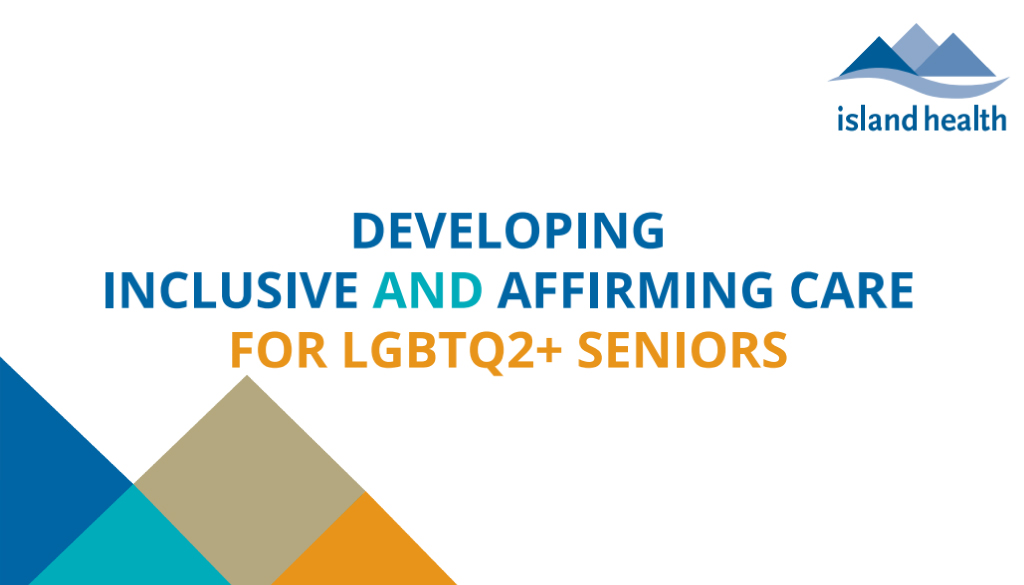This week, BC Care Providers Association has been running the series, Aging with Pride, which focuses on building LGBTQ2+ competency in a seniors’ living and wellness context. Across the province, local advocates and allies are working to create inclusive spaces for LGBTQ2+ seniors. One example is Nicole Tremblay, who has been leading the Island Health Authority’s efforts in this area.
“About three years ago I started seeing more research and reports about the anxieties which LGBTQ2+ seniors were feeling about aging and health care supports. The idea of receiving care from someone who may or may not be homophobic or transphobic is a scary thought for many LGBTQ2+ seniors, whether they live at home or in a care home. This led me to look at our programs to see what was currently in place to promote inclusive and welcoming care and I realized we had some work to do,” says Tremblay, Clinical Social Work Educator, Island Health Authority.
“For the most part, the lives of LGBTQ2+ seniors have been invisible in mainstream society. There is safety in invisibility, but here is also a cost. We all have a deep need to belong, to be connected, to be in relationship with others. We can only feel as though we belong if we are both seen and accepted.”
Through her work, Tremblay led the development of the toolkit titled “Developing Inclusive and Affirming Care for LGBTQ2+ Seniors.” The resource is intended to help leaders and policy makers consider the unique needs and concerns of the LGBTQ2+ community.
Tremblay’s work inspired the development of BCCPA’s Route 65’s LGBTQ2+ inclusivity designation.
Although finding accurate statistics can be challenging, it is estimated that anywhere between 3 and 10 percent of the population are lesbian, gay, bisexual, queer, two-spirited, or transgender. Using these parameters, there are between 4,500 and 15,000 LGBTQ2+ seniors served by Island Health.
“The toolkit was developed following a review of international and national research and through input from local focus groups,” says Tremblay.
“It includes a list of resources which operators can use to further their learning. The most visible impact of this work to date has been that it has started important conversations across systems, about visibility, belongingness, safety and inclusion,” she continues.
While the guide is specific to care context, there is significant relevance for all organizations serving seniors.
“We know that many LGBTQ2+ seniors feel concerned about entering seniors living residences, or care homes, because they feel that they will have to hide their sexuality or moderate their gender expression. We can’t change the lifetime of discrimination which may have led to these anxieties, but we can work to bring attention to places we can improve,” says Daniel Fontaine, CEO, BCCPA.
“BCCPA has been inspired by the work that the Island Health Authority has done and is very pleased to have the opportunity to help share their learnings more broadly,” he continues.
Island Health’s resource has been published on BCCPA’s new resource page. BCCPA encourages organizations to utilize the checklist to perform a self-assessment and help build competency across your organization.




